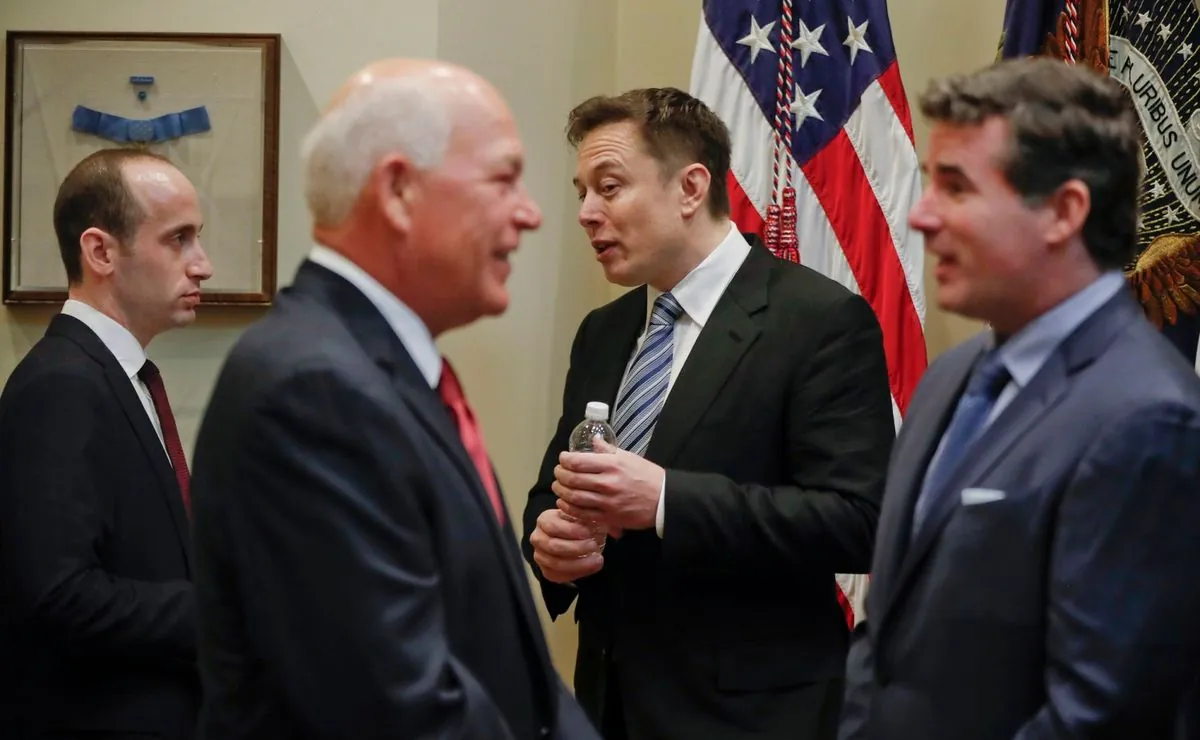Trump Proposes Musk-Led Government Efficiency Commission in Election Bid
Former President Trump announces plan for a government efficiency commission, potentially led by Elon Musk, if elected in November. The proposal aims to audit federal spending and recommend reforms.

In a recent address to the New York Economic Club, former President Donald Trump unveiled a proposal to establish a government efficiency commission, potentially led by Elon Musk, if he secures victory in the upcoming November 2024 election. This announcement comes as part of Trump's broader economic strategy to appeal to business leaders and voters.
The proposed commission, as outlined by Trump, would be tasked with conducting a comprehensive financial and performance audit of the federal government. Its primary objective would be to identify areas for potential cost-cutting and recommend significant reforms within a six-month timeframe. Trump emphasized the necessity of this initiative, stating, "We need to do it – we can't go on the way we are now."
Elon Musk, currently the world's wealthiest individual and CEO of both Tesla and SpaceX, had previously suggested the idea of such a commission to Trump in August 2024. Responding to reports about his potential involvement, Musk expressed his willingness to serve without compensation or recognition:
"I look forward to serving America if the opportunity arises. No pay, no title, no recognition is needed."
Musk's reputation for implementing efficiency measures in his businesses, including a significant workforce reduction at X (formerly Twitter) following his $44 billion acquisition in 2022, aligns with the commission's proposed goals. However, critics argue that such drastic measures in government could undermine the non-partisan civil service.

The proposal has drawn criticism from trade unions, with Everett Kelley, head of the American Federation of Government Employees, expressing concerns about potential impacts on the existing civil service structure. Critics argue that the plan could lead to the replacement of career government workers with political allies.
It's worth noting that the U.S. government already has the Government Accountability Office (GAO), a federal watchdog agency responsible for investigating federal spending and performance. The proposed commission's relationship with existing oversight bodies remains unclear.
Trump's announcement was part of a broader economic pitch to influential business leaders, including Jamie Dimon of JPMorgan Chase and Stephen Schwarzman of Blackstone. The former president also promised to reduce corporate tax rates from 21% to 15% if elected.
As the November 2024 election approaches, this proposal adds a new dimension to the ongoing political discourse, highlighting the intersection of government efficiency, private sector involvement, and economic policy in the campaign narrative.


































